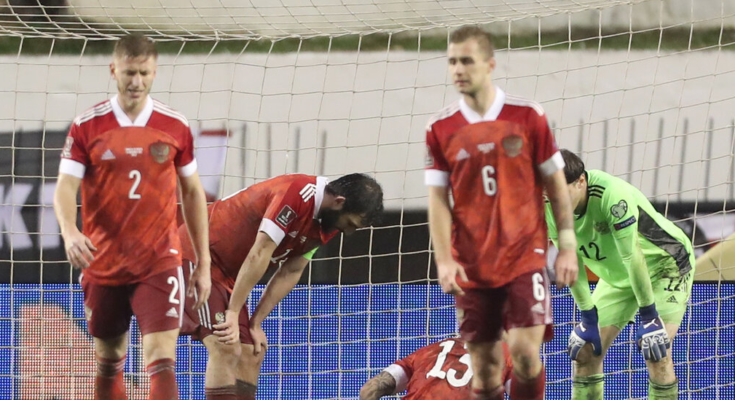FIFA and UEFA decided to bar Russia only hours after the International Olympic Committee called for international sports federations to prohibit Russian athletes and teams from all global sporting events where possible. The Olympic officials said Russia had breached a commitment — known as the Olympic Truce, and signed before the start of the Beijing Winter Games and scheduled to run through the Paralympics that open this week — when it invaded Ukraine.
The immediate consequence of soccer’s ban on Russia is that it will lose its place in a four-team group for one of Europe’s final places for the World Cup. Poland, which was scheduled to play Russia in March in Moscow, had said flatly that it would refuse to take the field for the game, a stance it repeated after FIFA announced its initial slate of penalties on Sunday night.
Cezary Kulesza, the president of Poland’s soccer federation, called FIFA’s initial decision not to eject Russia “totally unacceptable.” In a post on Twitter, he added: “We are not interested in participating in this game of appearances. Our stance remains intact: Polish National Team will NOT PLAY with Russia, no matter what the name of the team is.”
Sweden and the Czech Republic, the teams that could have met Russia — also in Moscow — if the Russians beat Poland, said that they, too, would refuse to play, even at a neutral site.
Understand Russia’s Attack on Ukraine
What is at the root of this invasion? Russia considers Ukraine within its natural sphere of influence, and it has grown unnerved at Ukraine’s closeness with the West and the prospect that the country might join NATO or the European Union. While Ukraine is part of neither, it receives financial and military aid from the United States and Europe.
The indefinite ban on Russia also extends to its club teams, meaning that Spartak Moscow, its last remaining participant in a continental competition, will no longer be able to compete in its Europa League knockout game against Germany’s RB Leipzig. That match was in doubt before Monday’s decision, with officials unsure how the Russian team could travel after the European Union issued a blanket ban on Russian flights into the 27-member bloc.
It remains unclear if the decision to exclude Russia will face a challenge in the courts. Russia, as well as some of its athletes, has in recent years successfully fought exclusion from other events, including the Olympic Games, by getting punishments watered down through appeals to the Court of Arbitration for Sport.
The Russian Football Union, known as the R.F.U., called the ban discriminatory, and said it was considering its legal options. “Such actions split the international sports community, which has always adhered to the principles of equality, mutual respect and independence from politics,” the F.R.U. said. “We reserve the right to challenge the decision of FIFA and UEFA in accordance with international sports law.”


